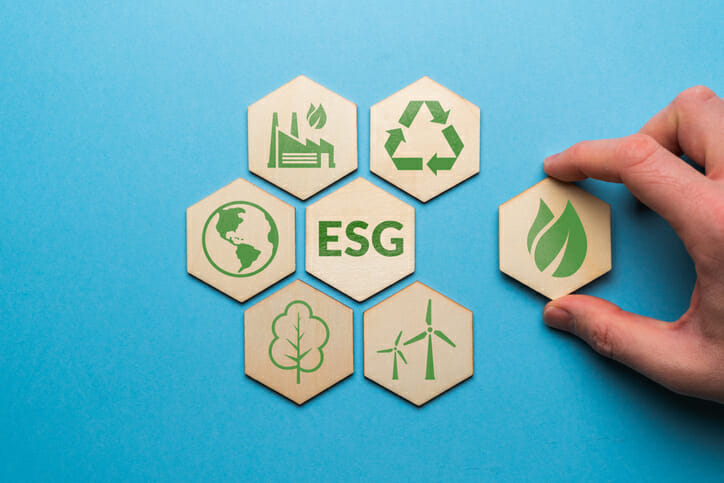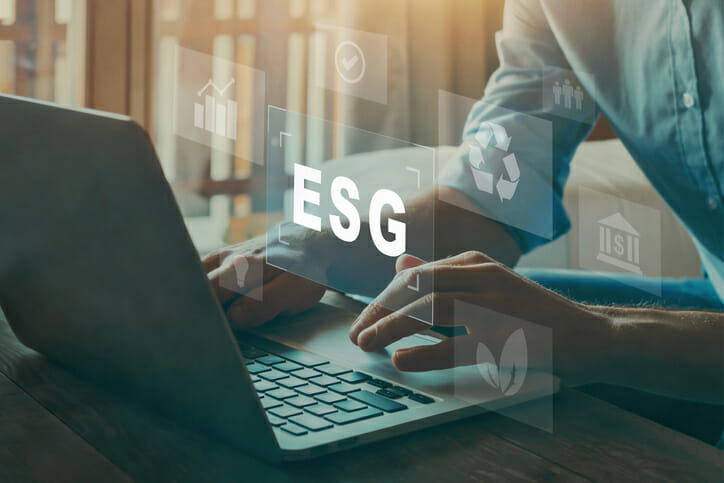ESG bonds are an investment choice for those seeking to build their portfolios with investments that have a positive impact on the world. ESG investments focus on companies with high environmental, social, and governance standards. A financial advisor could help you create a financial plan for your ESG investment goals.
What Is ESG Investing?
ESG stands for environmental, social and governance. In most cases, investors refer to ESG investing as socially responsible or environmentally friendly investing.
Let’s take a closer look at the criteria:
Environmental. When a company is considered environmentally friendly, it can factor energy efficiency, the use of recycled materials, carbon footprint and other environmental priorities into its business decisions.
Social. Socially responsible companies treat their workforce well, provide safe products, and participate in the community in a positive way.
Governance. The governance component of ESG refers to the way the company is run. Generally, this includes a commitment to socially responsible reporting, fair compensation policies and inclusion initiatives throughout the company.
When all of these elements are combined, you’ll find an ESG-friendly company.
What Is an ESG Bond?
Like other bonds, an ESG bond is a debt security. The difference is that an ESG bond is issued by a company that adheres to a high level of environmental, social, and governance standards.
With this combination, an investor can build their portfolio while pushing for company standards they believe in.
ESG bonds are sometimes compared with green bond. While they involve similar concepts, a green bond typically offer investors an opportunity to invest in sustainability projects such as pollution clean-up, preservation projects, or renewable energy projects.
ESG bond, on the other hand, are not limited to sustainability projects. Instead, these bonds could be issued by companies that offer responsible management of social issues.
Advantages of an ESG Bond

As an investor, there are several reasons to invest in an ESG bond. Here are four common advantages:
Invest in what you believe in. Not all company values will align with your own. Instead of compromising your morals, you can invest in an ESG bond that suits your investment sensibilities.
Fixed income. An ESG bond is based on debt. Each period, the investor will receive a set amount that’s tied to the schedule outlined in the bond. As an investor, this predictable income makes it easier to plan around.
Relatively low risk. Some ESG bonds offer a relatively low risk element. As a bond, an investment rating is attached to help you assess the risk of a particular bond. With that, you can choose to invest in relatively low risk ESG bonds.
Secondary market leads to liquidity. If you need to sell your ESG bond before it matures, that’s usually an option due to the extensive secondary market.
Disadvantages of an ESG Bond
As with all investment types, ESG bonds also come with some disadvantages to consider. Here are three common ones to look out for:
Can be challenging to choose your issues. It can be tricky to find a company that meets all of your ESG criteria. While some companies excel in environmental protection, they fail dramatically with social issues. As an ESG investor, you’ll have to make tough choices when selecting your companies.
You may miss out on other opportunities. Some ESG companies provide great returns through their issued bonds. But it might be possible to find better returns elsewhere.
Unknown risks. The ESG market is relatively new. With that, it may take some time for ESG bonds to take off. But if the political winds change, then the issuer’s ability to repay the principal of the underlying debt could put some investors out of luck. Take the time to research the company’s financials before jumping in.
Where to Buy ESG Bonds

You can find ESG bonds through a variety of brokerage platforms. If you need help hunting down the best ESG bond for your portfolio, consider working with a financial advisor. They’ll know exactly where you can find an ESG bond that suits your needs.
Bottom Line
A bond that meets ESG standards isn’t the only reason to invest. Instead, you’ll also need to consider the bond’s ratings when deciding whether or not it’s a good investment.
Tips for Investors
- A financial advisor can help you build an investment portfolio that aligns with your values and your investment goals. SmartAsset’s free tool matches you with up to three financial advisors who serve your area, and you can interview your advisor matches at no cost to decide which one is right for you. If you’re ready to find an advisor who can help you achieve your financial goals, get started now.
- Bonds can help you adjust your portfolio to meet your risk tolerance. But finding the right asset allocation isn’t always easy. SmartAsset’s asset allocation calculator can help you map out your risk tolerance strategy.
Photo credit: © iStock/anyaberkut, ©iStock/gesrey, ©iStock/pcess609
